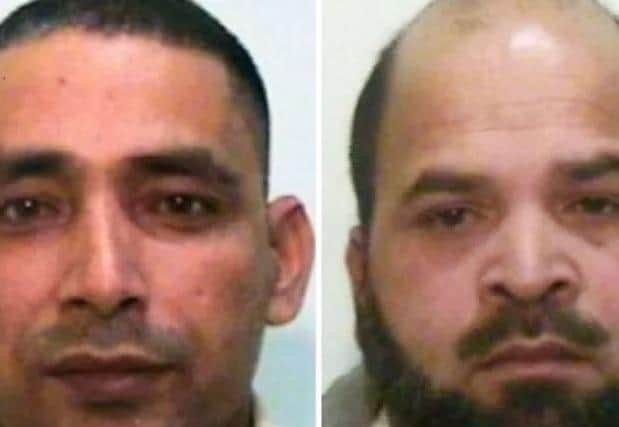Rochdale grooming gang: two members lose Pakistan deportation battle - what the judges said in ruling
and live on Freeview channel 276
Two men who were part of the notorious Rochdale grooming gang have lost an appeal against deportation to Pakistan following a seven-year legal battle, immigration judges have ruled.
Adil Khan, 51, and Qari Abdul Rauf, 52, had been told they are to be deported from the UK for the public good after being part of a gang convicted in 2012 of a catalogue of serious sex offences against young girls.
Advertisement
Hide AdAdvertisement
Hide AdA decade after they were jailed and following a legal battle involving multiple legal challenges and appeals up to the Court of Appeal, both have been told their challenge against deportation on human rights grounds has failed.


What did the judges say in their ruling?
In June, their appeal against deportation was heard before an Immigration Tribunal.
Judges Charlotte Welsh and Judge Siew Ling Yoke, a diversity and community relations judge, released their 31-page legal ruling on Wednesday stating that Khan had shown a “breath-taking lack of remorse” and in his and Rauf’s case there was a “very strong public interest” in their removal.
The decision was made in August and released publicly on Wednesday.
Advertisement
Hide AdAdvertisement
Hide AdKhan told the tribunal hearing earlier this year he wanted to stay in the UK to be a “role model” for his son.
Both men cited their human rights as reason not to be kicked out of the UK and that they had both had certificates “renouncing” their Pakistani citizenship.
The pair, along with another man Abdul Aziz, had fought and lost a long legal battle against an order depriving them of UK citizenship, the prelude to deportation, losing a final Court of Appeal ruling in 2018.
The failure to then deport them has led to anger in Rochdale, where victims were living alongside their tormentors, and has heaped public criticism on a number of home secretaries.
What were their reasons for appealing?
Advertisement
Hide AdAdvertisement
Hide AdThe tribunal heard Khan and Rauf’s reasons for appealing against deportation were on the grounds of Article 8 of the European Convention on Human Rights, the right to a private and family life.
Other grounds of appeal cited were “statelessness” after both renounced his Pakistani nationality, receiving a certificate of proof in September 2018, so could not be returned there.
But this only came after the Court of Appeal decision in June to deport them from the UK, though the deprivation order was only received by them in November 2018.
During the appeal hearing it emerged Abdul Aziz, a ringleader of the gang, had been allowed to remain in the UK because he had also renounced his UK citizenship but earlier than the other two and just days before the Court of Appeal ruling.
Advertisement
Hide AdAdvertisement
Hide AdKhan got a girl, 13, pregnant but denied he was the father then met another girl, 15, and trafficked her to others using violence when she complained.
He was sentenced to eight years in 2012 and released on licence four years later.
Rauf, a father-of-five, trafficked a 15-year-old girl for sex, driving her to secluded areas to have sex with her in his taxi and ferry her to a flat in Rochdale where he and others had sex with her.
He was jailed for six years and released in November 2014 after serving two years and six months of his sentence.
When were they convicted?
Advertisement
Hide AdAdvertisement
Hide AdThey were part of a gang of nine men convicted of sex offences against vulnerable girls in 2012.
For two years from early 2008, girls as young as 12 were plied with alcohol and drugs and gang-raped in rooms above takeaway shops and ferried to different flats in taxis where cash was paid to use the girls. Police said as many as 47 girls were groomed.
During multiple deportation appeal hearings Khan complained about having no rights in the UK and said he needed to remain in the UK to be a role model for his son and teach him, “right from wrong”.
He also denied grooming offences, saying his prosecution was motivated by racism and claiming he could not groom anyone as he could not speak English.
Home Office lawyers argued the case had taken a “very long time” and it is in the public interest to deport both men “as soon as possible”.